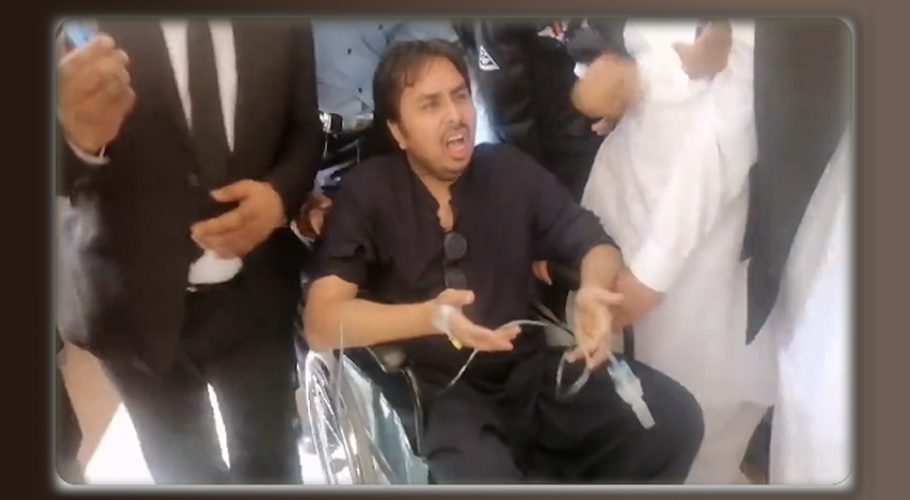ISLAMABAD: The Islamabad High Court on Thursday granted bail to Pakistan Tehreek-e-Insaaf leader Shahbaz Gill in the sedition case.
Chief Justice IHC Athar Minallah heard Gill’s petition for bail in the sedition case and ordered his release against surety bonds of Rs500,000.
Gill, the chief of staff for PTI Chairman Imran Khan, has been detained for weeks since his arrest following a treason case lodged against him for allegedly inciting rebellion within the Pakistan Army through his comments during a private TV channel show.
The lawmaker claimed that he was detained by Kohsar police on August 9 and named the Kohsar Police Station SHO, City Magistrate Ghulam Murtaza, and others as parties in the plea.
Gill had approached the IHC last Friday after his failure to get bail from a trial court despite continuous efforts.
During the hearing, Justice Minallah asked the special prosecutor, Rizwan Abbasi, whether the interrogators have found anything against Gill.
Justice Minallah asked the prosecutor whether Gill contacted someone for mutiny, or if the armed forces lodged any complaints.
IHC Chief justice wondered whether armed forces be affected by such an irresponsible statement.
Earlier, Salman Safdar, Shahbaz Gill’s lawyer, claimed that some parts of the comment made by the PTI leader were taken out of context and exploited against him. Gill stated that the complaint is not a party to the case and that he had merely discussed the government and a political party.
Salman reminded the court that the Emaan Mazari case had been dismissed and guided the court in that direction. The Chief Justice responded that it was a distinct case and that he should only speak about their case. The FIR now has 11 sections, one of which Shahbaz is charged under. Although Gill was accused under 11 sections, the trial court only gave it one number, thus throwing out the case.
The CJ said that Shahbaz Gill’s irresponsible statement cannot be justified in any manner. The PTI government also used ploys such as sedition cases against their political enemies, he added.
The CJ inquired from the prosecutor if they challenged the trial court’s decision to dismiss all but one section of the FIR. You can challenge the verdict if it sabotages your case, the CJ added.
The prosecutor made the case that Gill attempted to instigate mutiny in an institution by his comments, which is considered sedition.
The CJ claimed that although the court acknowledged Shazbaz’s statement was careless, it did not qualify as sedition. He noted that political groups now playfully accuse one another of sedition.




































